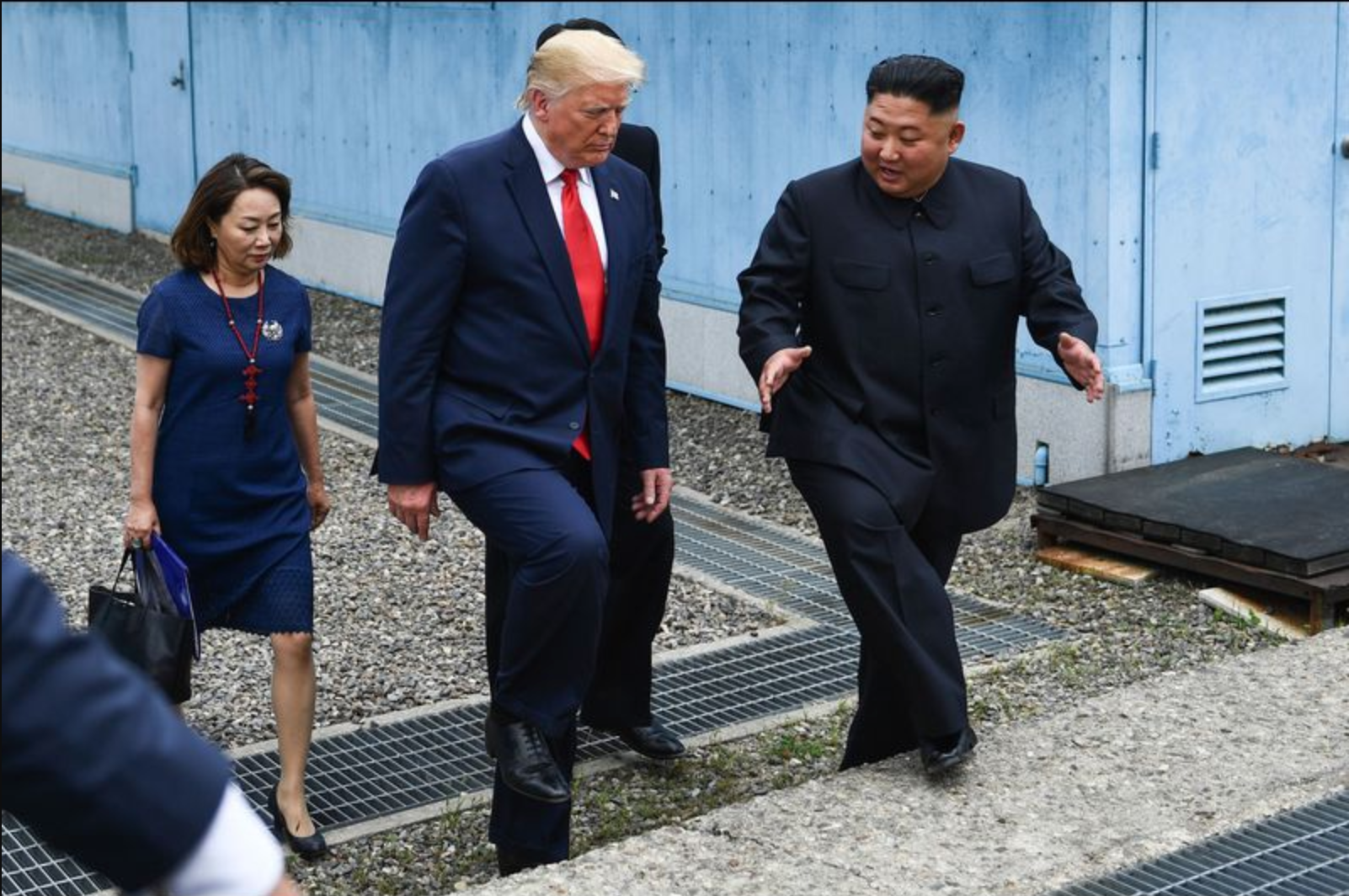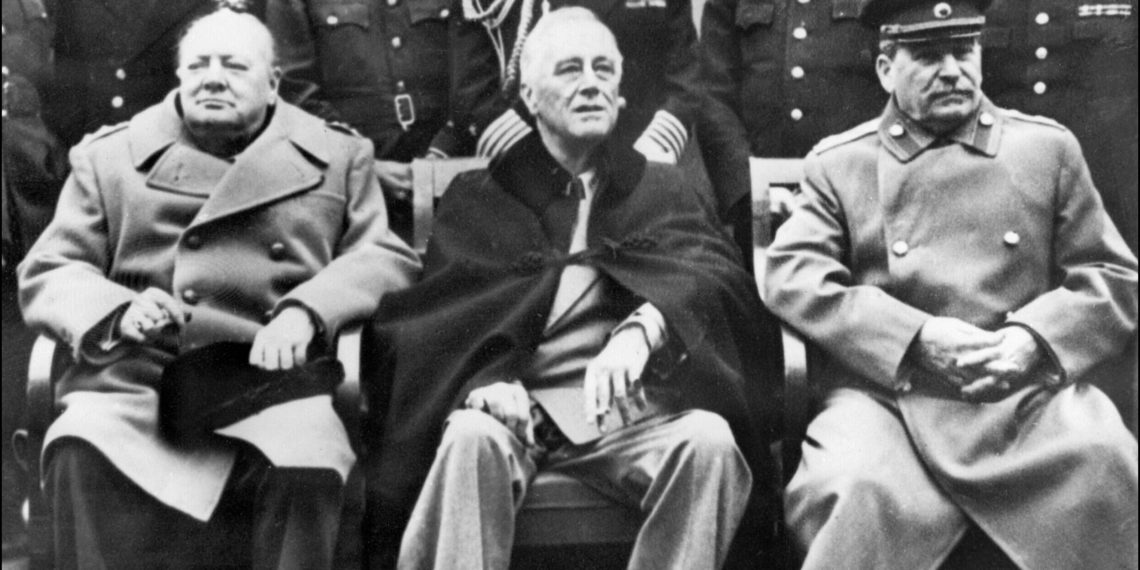In February 1945, U.S. President Franklin Roosevelt, British Prime Minister Winston Churchill, and Soviet Union leader Josef Stalin met in Yalta to discuss issues of war and peace.
In 2005, 60 years after Yalta, President George W. Bush criticized the decisions made at the conference. He proclaimed that “powerful governments” had sacrificed the freedom of small nations for the “sake of stability,” leaving Europe divided and unstable. “The captivity of millions in Central and Eastern Europe will be remembered as one of the greatest wrongs of history,” he said.
But Bush’s tale of betrayal is a myth. On the conference’s 75th anniversary, the meeting shouldn’t be remembered as an indictment of great power diplomacy. Rather, it’s an enduring case study in the dilemmas of global leadership.
1945 Yalta Conference
Many of the decisions reached at Yalta were initially sketched at the first “Big Three” meeting in Tehran in 1943. Yet Yalta became a dirty word in the late 1940s as the Cold War intensified, and conservatives in America saw an opportunity to attack Roosevelt’s legacy and hurt Democrats’ electoral prospects.
Though much of what was decided in Yalta had been outlined earlier, bargaining was still intense. After an exhausting week, the three men agreed to divide Germany into four occupation zones, settled on the structure of the U.N., and Stalin consented to enter the war in the Pacific in exchange for the Southern Sakhalin and the Kuril Islands.
The most contentious negotiations were over Poland. Before the conference, Stalin recognized a pro-Soviet government in the country. Churchill and Roosevelt refused to follow suit, and the result was a vague agreement to make the Polish government more inclusive by adding some non-communists. The three men also promised “free and unfettered elections” in Poland, as well to help lands liberated from the Nazis hold elections and form democratic governments.
But Stalin never allowed those elections. Having been invaded twice in the last 30 years, he sought to expand Soviet borders, including a buffer zone of friendly governments in Eastern Europe. He wouldn’t risk democratic elections that might lead to anti-Soviet governments.
Limited Options
What could Roosevelt and Churchill have done to protect Eastern Europe?
Not much. From June 1941 until D-Day in June 1944, the Soviets bore the brunt of German aggression. And once Stalin’s forces began to push back the Nazis in early 1943, it was inevitable they would be the dominant power in Eastern Europe. After years of brutal fighting, with victory now in sight, a new conflict with a wartime ally was an unrealistic option for Western leaders.

One potential source of leverage was economic. Years of fighting left the Soviet economy in shambles, and it needed U.S. aid to rebuild. While some of Roosevelt’s advisers thought postwar financial assistance might be used to induce good behavior from Stalin, the president himself wasn’t convinced. He expected a postwar recession, and the prospects of getting an aid package through Congress were unclear.
Roosevelt also had to prioritize. His main objective was ending the war quickly at the lowest cost possible. At Yalta, the U.S. president was eager to get a firm Soviet commitment to enter the war in the Pacific. American planners estimated an invasion of Japan would cause millions of American causalities. And with the atomic bomb unfinished and its power unknown, Soviet help was deemed essential. Possessing little leverage and needing Stalin’s help, there were limits to how much Roosevelt could push on Eastern Europe.
Global Leadership is Messy
Just like Roosevelt and Churchill, world leaders today face the dilemma of making painful tradeoffs as they attempt to respond to global challenges and advance their national interest. Whether it’s confronting terrorism, civil war, international trade, boundary disputes, or arms control, there are no easy solutions.
Take North Korea’s nuclear program, a problem a generation of leaders has failed to resolve. Diplomacy is necessary, but negotiations haven’t produced an agreement. And as talks drag on, North Korea continues to advance its capabilities.
Economic pressure is more promising, but sanctions place the heaviest toll on ordinary people, not those in power. Financial assistance could be offered as an inducement, but then a rogue regime is rewarded for bad behavior.
A military strike would be the ultimate option, but there is no guarantee it would destroy all of North Korea’s nuclear capabilities. And it could trigger a wider conflict. If the United States attacked, Kim Jong Un could respond by bombarding Seoul, which experts estimate could result in hundreds of thousands of deaths in a matter of days.

Like most international issues, North Korea’s nuclear program requires a combination of approaches. The challenge is finding the right mix.
Global leadership is messy. It requires balancing competing objectives and making imperfect decisions under serious constraints. And it’s as true today as it was 75 years ago at Yalta.
That doesn’t mean, however, that leaders get a pass for their choices.
Roosevelt and Churchill’s diplomacy wasn’t flawless. They placed too much faith in their personal relationship with Stalin, even though it was almost inevitable that an alliance made of necessity would weaken once the threat that created it ceased to exist.
But they didn’t gift Eastern Europe to Stalin. Political and military realities limited what Roosevelt and Churchill could do. They were forced to make unpleasant compromises to advance their objectives. This is a dilemma all world leaders, both past and present, can appreciate.
So, on the 75th anniversary of Yalta, rather than see the treachery of particular leaders, see the travails of leadership. Such an outlook, while not always easy, deepens our understanding of the dynamics involved in global leadership and helps us make sense of a complex world.
Disclaimer: The views and opinions expressed here are those of the author and do not necessarily reflect the editorial position of The Globe Post.






















